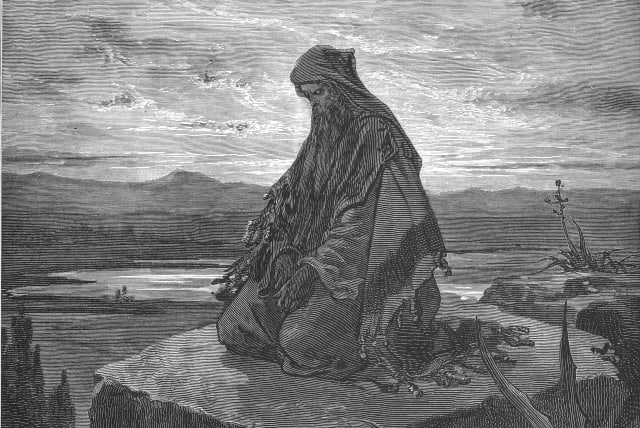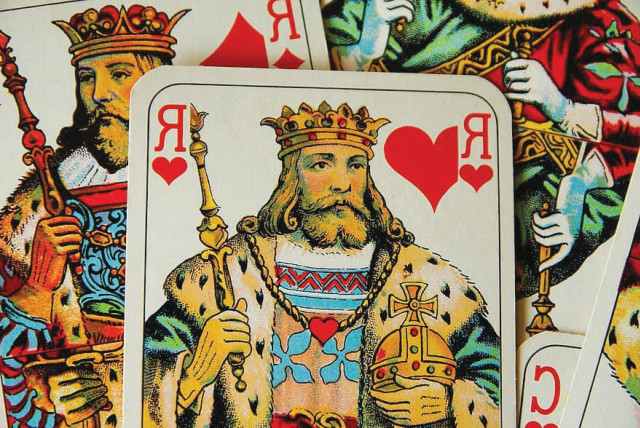Parashat Shoftim: Values and power

Anyone who wields power must bear in mind the ethical teachings of the prophets, recognizing that values take precedence over power, and should guide those in power.
This week’s Torah portion, Shoftim, mainly deals with the structure and authority of governing bodies in the Jewish state that operate according to the laws of the Torah.
In short, there are three separate authorities: the political state authority, led by the king; the judicial authority, led by the judges sitting in Jerusalem; and the religious authority, led by the priests (kohanim). Alongside these three authorities stands the prophet, a person devoid of executive power, whose role is to illuminate the spiritual-moral aspect befitting the people.
In history, we know of prophets who stood courageously before kings. Although they lacked power, they expressed the word of God and admonished the kings for corrupt behavior.
Prophets vs kings: Speaking truth to power in the Bible
The most famous story is that of Elijah the Prophet at the vineyard of Naboth. King Ahab of Israel, a powerful king, desired Naboth’s vineyard, a commoner’s vineyard adjacent to the king’s palace in Jezreel. When Naboth refused to sell the vineyard to the king, Queen Jezebel conspired against him with her husband’s silent acquiescence, resulting in Naboth’s death. Ahab then seized the desired vineyard. In response to this injustice, Elijah rebuked Ahab and warned him that this act would lead to his death and the destruction of the royal house, reciting the famous judgment: “Would you murder and also take possession?”
There is also a story about the prophet Elisha when King Jehoram of Israel asked him if he would win the battle against Moab, the neighboring country to the east of Israel. Elisha sharply replied, “What have I to do with you? Go to the prophets of your father and the prophets of your mother!” referring to the prophets of Baal, the idol worshipers.
The same was true for Isaiah the prophet, who rebuked King Hezekiah of Judah; Huldah the prophetess, who admonished King Josiah of Judah; and Jeremiah the prophet, who warned King Zedekiah of Judah. Scripture tells us about a line of prophets, some of whom paid with their lives, such as Isaiah, who was killed by Manasseh, and others who suffered the loss of their freedom, like Jeremiah, who was thrown into prison for his disturbing prophecies.
One should not think that the prophet imposes a legal constraint on the king’s power. The prophet has no power other than the truth and moral principles that come from his mouth. The moral voice that the prophet utters is meant to penetrate hearts, to shock people, especially those in authority, and to lead them to make proper and ethical choices.
This is an exceptional power structure. We know that in ancient times, there were prophets not only in Israel. Among all the nations in the East and other places, there were individuals who claimed to convey prophecies in the name of various gods. However, while in those other nations the prophets were an integral part of the royal court and their prophecies served the interests of those in power, among the Jewish nation, both in the Kingdom of Judah and in the Kingdom of Israel, the situation was precisely the opposite: The prophets were a troubling opposition to the royal court.
The biblical concept of authority is not democratic but rather monarchical. Throughout generations, interpreters and scholars have debated whether the Bible supports monarchy as a desirable form of governance or whether the Bible operated in a world where this was the only form of rule. Yet, despite the Bible accepting this form of rule, it expressed criticism of unchecked exploitation of power leading to corrupt behavior.
The prophets opposed that sort of power. Their role is to convey the word of God fearlessly, to confront those in power, to raise awareness about justice and morality, and to demand fair and responsible conduct from the rulers. The moral teaching of the prophets, preserved for generations, served as an ethical counterweight against the perception that granted those in power the right to oppress and trample the weak.
Not only kings need the moral balance of the prophets. Even in a democracy, there are individuals with power who may exploit it for evil purposes. These individuals could be elected officials, clerks, or even judges. Anyone who wields power must bear in mind the ethical teachings of the prophets, recognizing that values take precedence over power, and should guide those in power to act in a worthy, responsible, and ethical manner. ■
The writer is the rabbi of the Western Wall and holy sites.
Jerusalem Post Store
`; document.getElementById("linkPremium").innerHTML = cont; var divWithLink = document.getElementById("premium-link"); if (divWithLink !== null && divWithLink !== 'undefined') { divWithLink.style.border = "solid 1px #cb0f3e"; divWithLink.style.textAlign = "center"; divWithLink.style.marginBottom = "15px"; divWithLink.style.marginTop = "15px"; divWithLink.style.width = "100%"; divWithLink.style.backgroundColor = "#122952"; divWithLink.style.color = "#ffffff"; divWithLink.style.lineHeight = "1.5"; } } (function (v, i) { });

